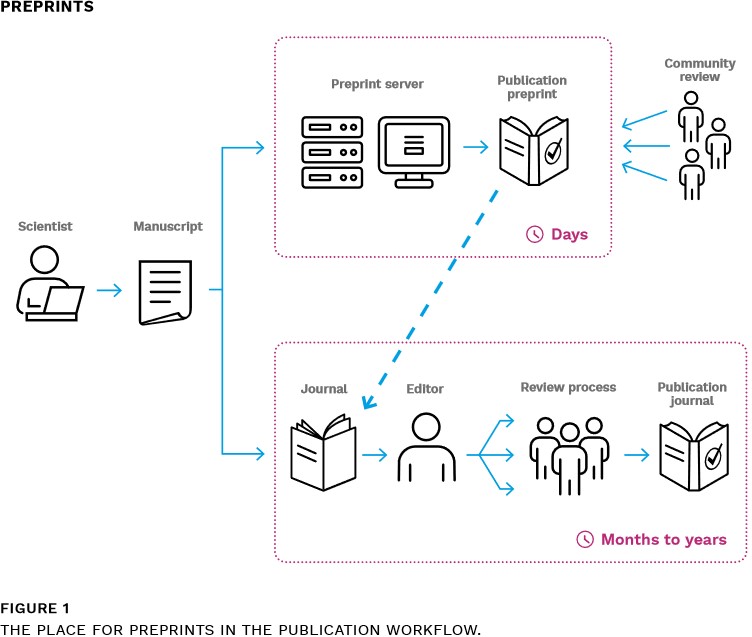Publishing results in the form of preprints is another way to make the scientific process more “open”, transparent and faster. In recent years, this form of scholarly communication has become increasingly important, and the number of preprint servers has increased along with this. More and more funders are supporting communication via preprints and more and more publishers are allowing authors to upload texts in the form of preprints before an article is accepted for peer review. Preprints are indexed in search engines (e.g. Google Scholar) and Scopus includes them in the author profile (they do not affect citation and publication metrics) as of early 2021. As part of the Open Science requirements of the OP JAK, preprint publication is one of the non-mandatory practices of Open Science.
The Consortium of Dutch University Libraries, the Dutch National Library, together with the Association of Dutch Universities and the Dutch Research Council, published a very practical guide to preprints at the end of 2021, in which a number of questions can be answered – such as – how and in what ways preprints for articles differ, how to publish your own preprint and how to choose an appropriate preprint server for this, how to interpret scientific findings published in preprint form, etc. “A Practical Guide to Preprints: Accelerating Scholarly Communication“.
The Preprint Server Database, created at the end of 2022 in collaboration between the Centre pour la Communication Scientifique Directe (CCSD) and the Confederation of Open Access Repositories (COAR), can then be used to select a suitable platform.
Selected examples of preprint servers:
bioRxiv (life sciences)
medRxiv (medicine and health)
PsyArxiv (behavioral sciences)
SocArXiv (social sciences and humanities)
ArXiv (physics, mathematics, computer sciences)
ChemRxiv (chemistry)
Last updated on August 12, 2024



